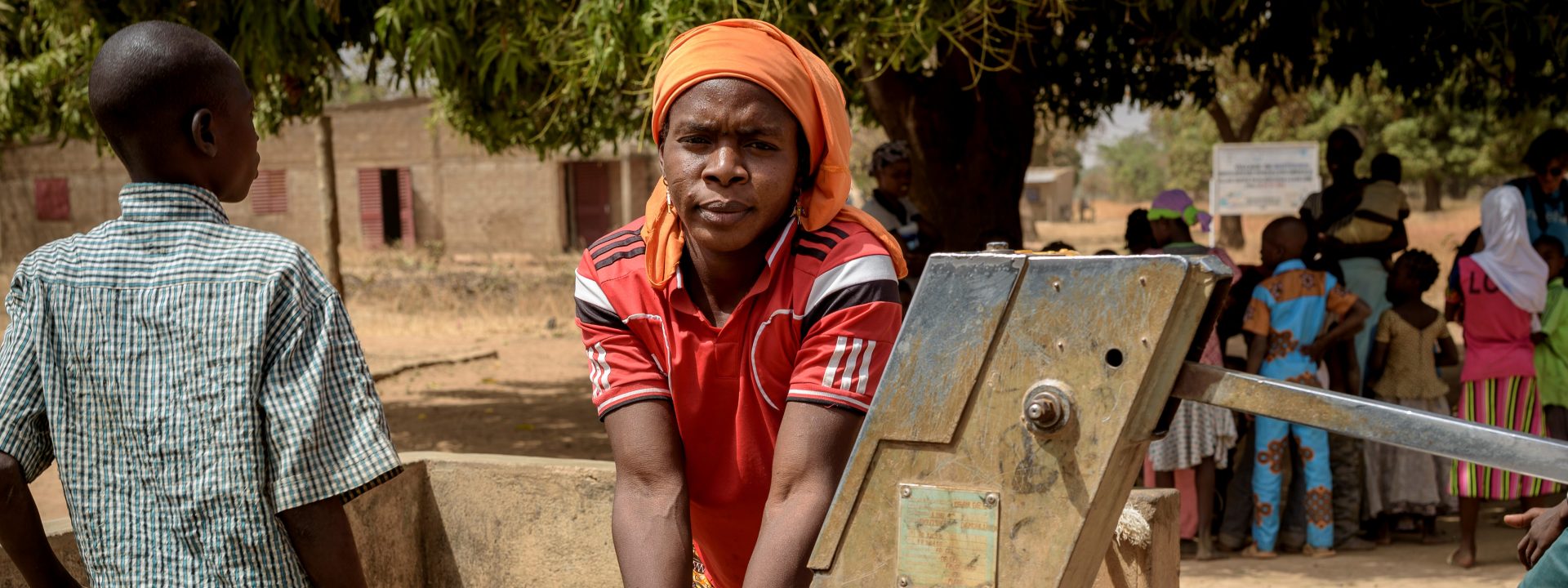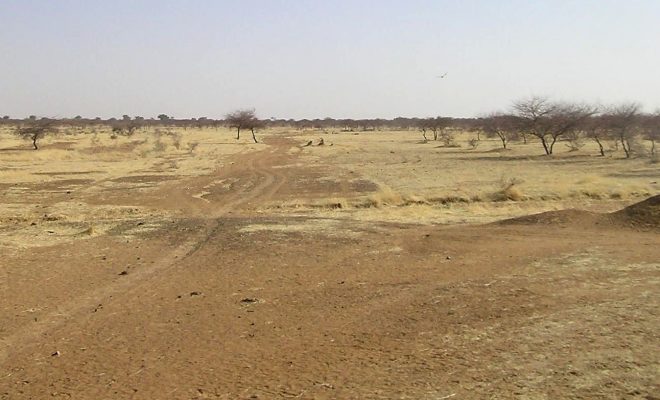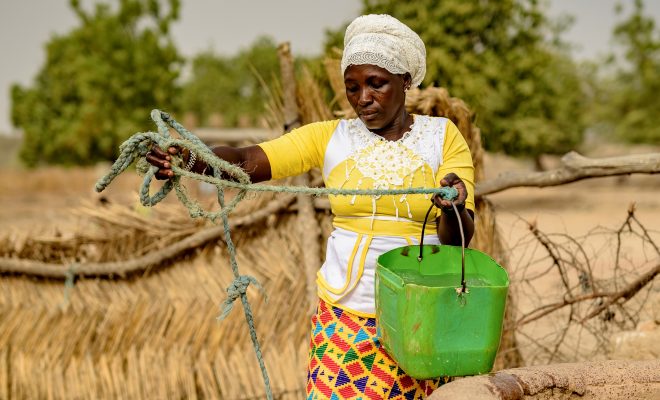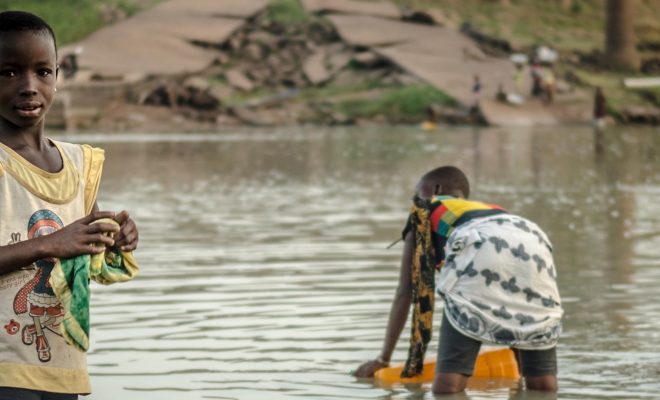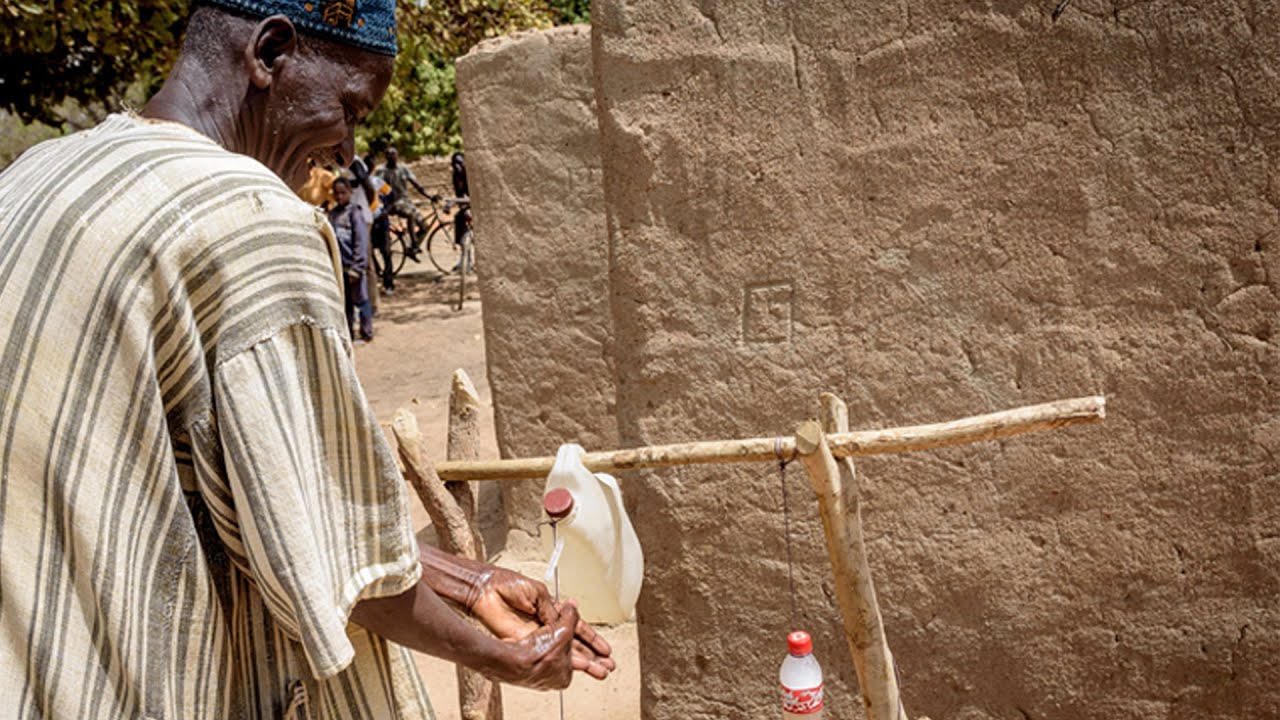
In Africa, the Sahel strip is a hub of increasing instability and one of the regions of greatest international concern due to the increase of terrorist violence, ethnic conflicts and the evident effects of climate change. Developed countries are concerned about this worsening situation, which dramatically punishes one of the poorest regions in the world and generates extreme poverty and intense migratory movements. This concern is particularly evident in the European Union, first destination of most of those who hope for a better life, far from poverty and violence. According to United Nations, nearly 24% of the global demographic increase until 2050 will occur in ten of the eleven countries in the Sahel strip, which may become transit territory for almost 200 million Africans who wish to cross the Mediterranean.
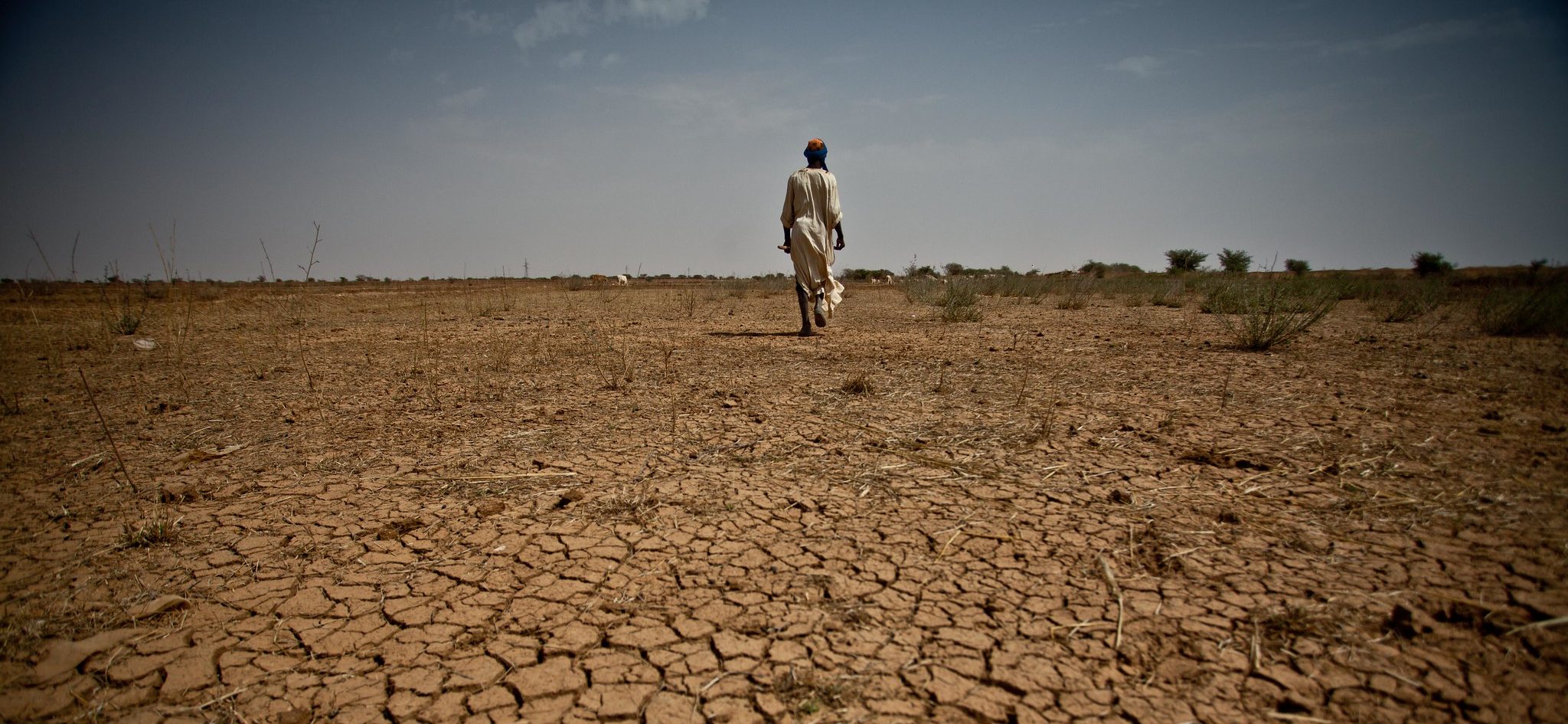
In the so called African “hunger belt”, it is clear that the attainment of the SDG 6 is essential to attain all other goals. © Pablo Tosco/Oxfam
International alarm and despair
The latest terrorist attacks, such as the murders of journalists in Burkina Faso, the ethnic killings of more than 130 people in the Malian village of Ogossagou and the kidnapping and enslavement of children have alarmed international opinion. According to the United Nations High Commissioner for Refugees (UNHCR), this violence, together with extreme poverty, is the cause of more than 5.4 million people fleeing their homes in the Sahel.
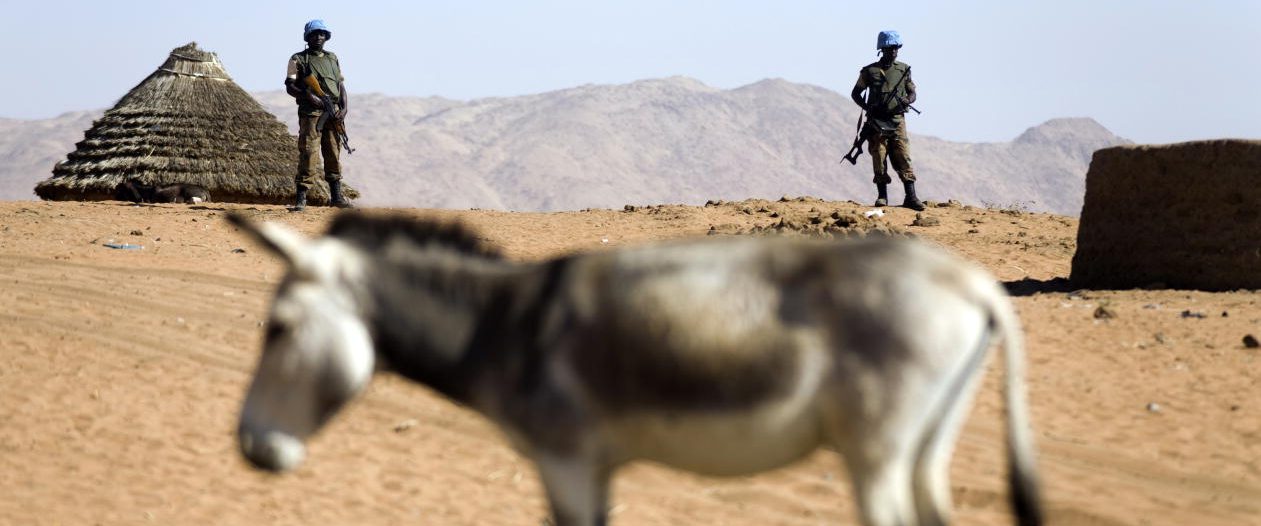
The UN stabilization force, the EUTM Mali mission of the European Union and the French deployment of 5,100 soldiers of the Barkhane Operation, which operates in Mali, Mauritania, operates in Burkina Faso, Niger and Chad. © UN Photo/Albert Gonzalez Farran
The resurgence of terrorist attacks is a human drama that is slowly turning into a full-scale war which expands across Sub-Saharan Western Africa, already threatening those countries south of the Sahel region. It is a conflict that is undermining their governments and placing those in charge of the international military forces operating in the area in an uncertain position: the UN stabilization force, made up of 16,000 soldiers from 60 countries, the EUTM Mali mission of the European Union and the French deployment of 5,100 soldiers of the Barkhane Operation, which operates in Mali, Mauritania, Burkina Faso, Niger and Chad.
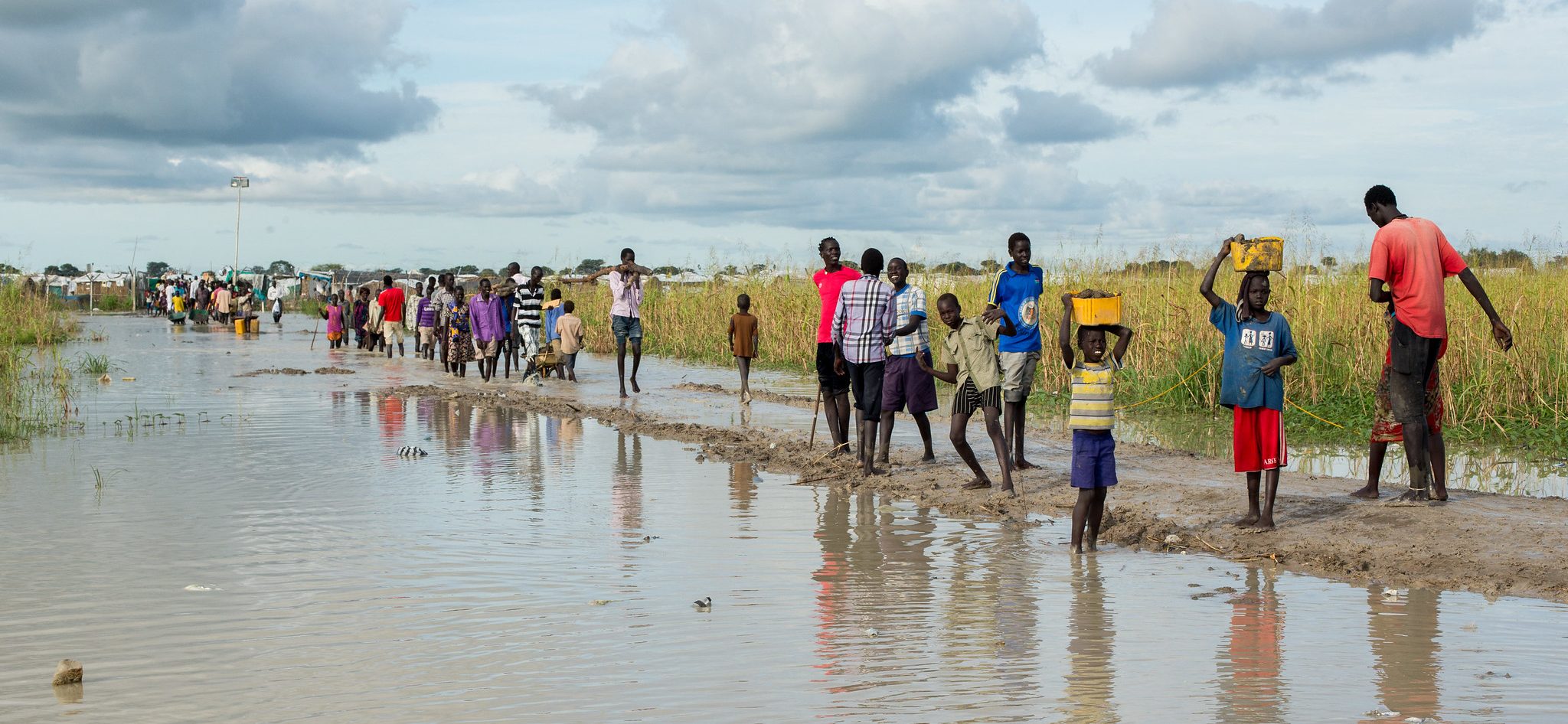
The resurgence of terrorist attacks is a conflict that is undermining their governments and placing those in charge of the international military forces operating in the area. © UN Photo/JC McIlwaine
These peace efforts have been unable to achieve their subsequent goals, which are to promote economic development and stop the migratory wave. The recent announcement by the French president Emmanuel Macron of a gradual drawdown of its troops in the Sahel is a symptom of military intervention fatigue in the absence of tangible achievements. Macron declared: “There is a feeling of exhaustion and a general feeling of not having a reason to stay there.”
International institutions and the NGOs that operate in the vast region see the impotence of local governments as the main reason of this instability and apparent despair of international aid. Many observers state that most of these countries are “failed states”, unable to provide public services and exercise real control of the social complexity of their territory.
Facing the climatic abyss of drought and desertification
The other major concern is climate change. Devastating droughts have spread throughout the region, confirming the forecasts of the Intergovernmental Panel on Climate Change (IPCC). Severe dry spells have increased the decoupling of ecological systems started decades ago by poor governmental management of resources: during the rainy seasons, both governments and farmers increased grazing and agriculture, causing a systematic overexploitation of the land well beyond its average capacity to provide water and pasture; for this reason, when the droughts returned, losses were even higher and the ruin of farmers more severe.
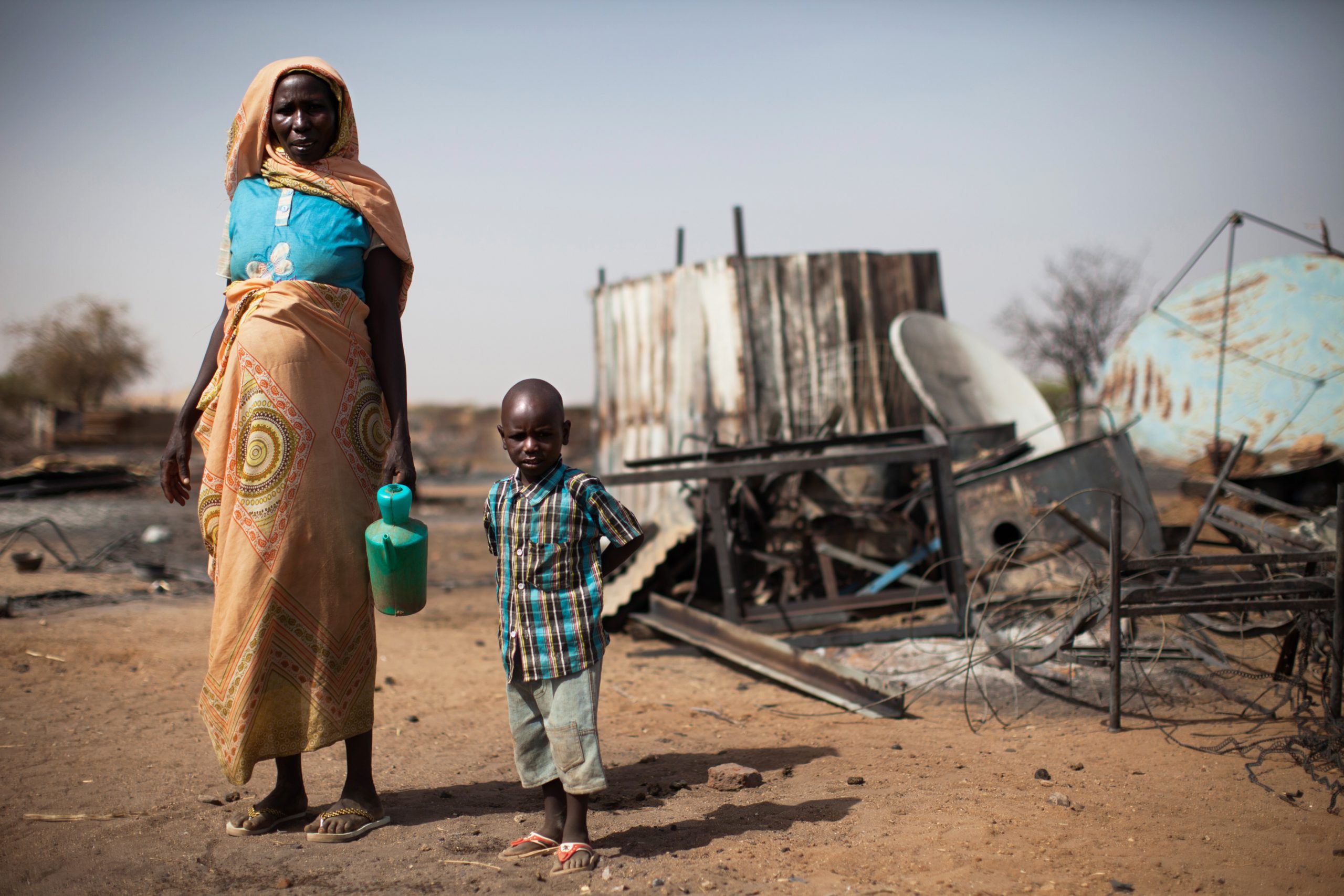
One of the most excruciating consequences of drought and its mismanagement is the malnutrition caused by famine, which continues to threaten 7.2 million children under the age of five and pregnant and lactating women. © UN Photo/Albert González Farran
One of the most excruciating consequences of drought and its mismanagement is the malnutrition caused by famine, which continues to threaten 7.2 million children under the age of five and pregnant and lactating women. According to UNICEF, nearly one in five children in the Sahel dies before reaching the age of five and a third of these deaths is linked to malnutrition.
Furthermore, endless ethnic conflicts and century-old clashes between herders and farmers worsen due to hydric stress, a problem that affects the entire African region. Drought and desertification have led to increased competition for scarce resources. According to the United Nations World Food Programme (WFP), temperatures are rising at 1.5 times the global average, which has contributed to the increasing deterioration of pasture and the decrease in crops.
The forecasts of the IPCC are also being realized in terms of natural disasters: in August 2018, six of the ten regions in Mali experienced heavy rainfall that caused floods which affected 70,700 people and damaged homes and food warehouses; last summer, Niger, Burkina Faso, Mauritania, Nigeria, Chad and Sudan were affected by extreme rainfall which killed nearly one thousand people and affected more than half a million, destroying thousands of hectares of crops.
Leading population growth
Nowadays, UNHCR states that the more than 5.4 million displaced Sahel people who have lost their livelihoods are living in already vulnerable communities. These displaced people are now compounding the incapacity of these countries’ economies to absorb a growing mass of unemployed young people left behind by the coronavirus pandemic. This has happened, for instance, in Mali, where the Foundation is carrying out an aid project in Kayes, a region with an enormous migratory pressure whose health services have been overwhelmed to provide hygiene services to the population due to the crisis.
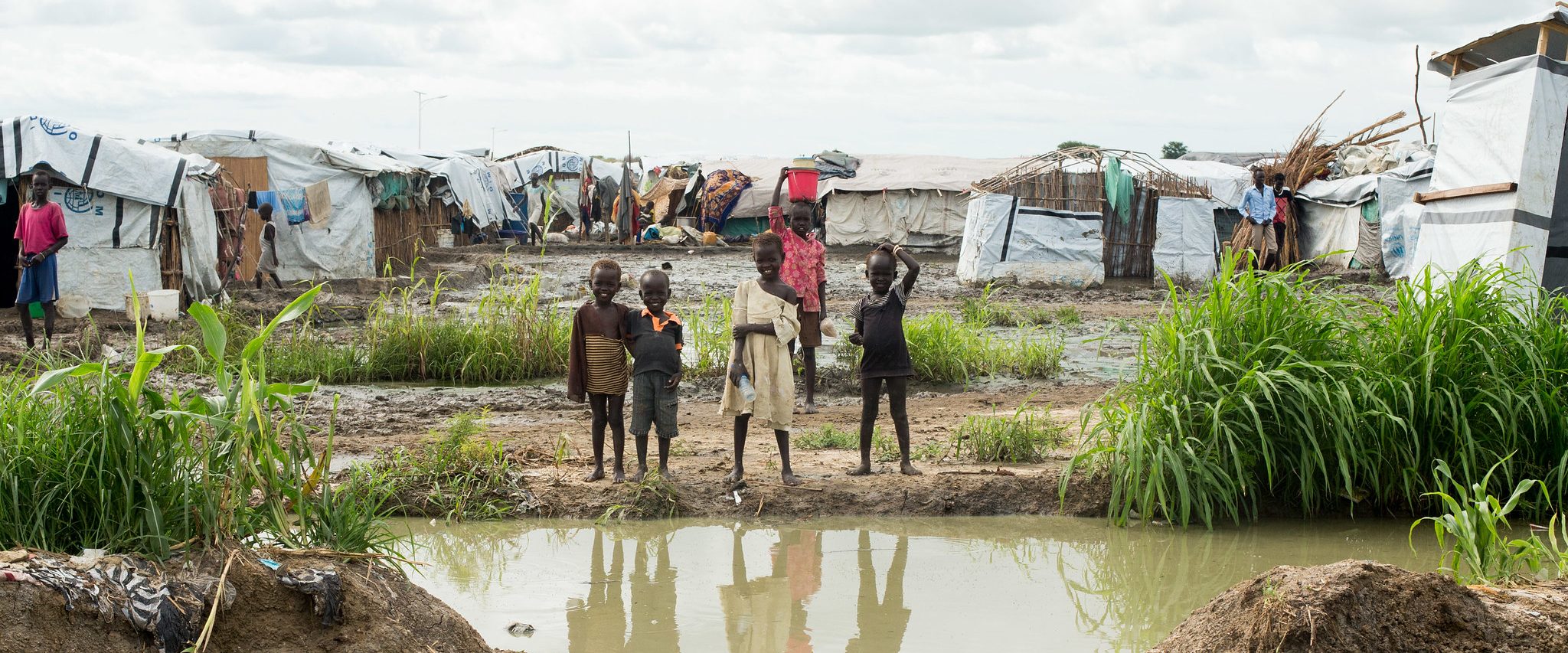
Nowadays, UNHCR states that the more than 5.4 million displaced Sahel people who have lost their livelihoods are living in already vulnerable communities. © UN Photo/JC McIlwaine
According to the World Bank, half of the demographic growth until 2030 will take place in Africa and nearly 24% of the global demographic increase until 2050 will occur in ten of the eleven countries in the Sahel strip. The growth of the population will increase current shortages. International observers warn that a cycle of growing instability is being created, a true social minefield for ideological radicalization and migratory yearning.
Water and sanitation, a key combination
The Sahel countries need momentum to emerge from the severe crisis they are experiencing and face the enormous political, social, economic and climatic challenge that lies ahead. This is the area of the planet where it is perhaps more important to have access to water and sanitation, vital goals to make the necessary progress.
The eradication of open defecation in the Sissily region, in Burkina Faso, is a good example. There, the projects of the Foundation with UNICEF have helped establish government guidelines for the rest of the country to eliminate this scourge based on community participation. A community that is capable of managing its own sanitation can achieve an empowered social fabric in a basic factor for their health and start on the path to leave poverty behind.
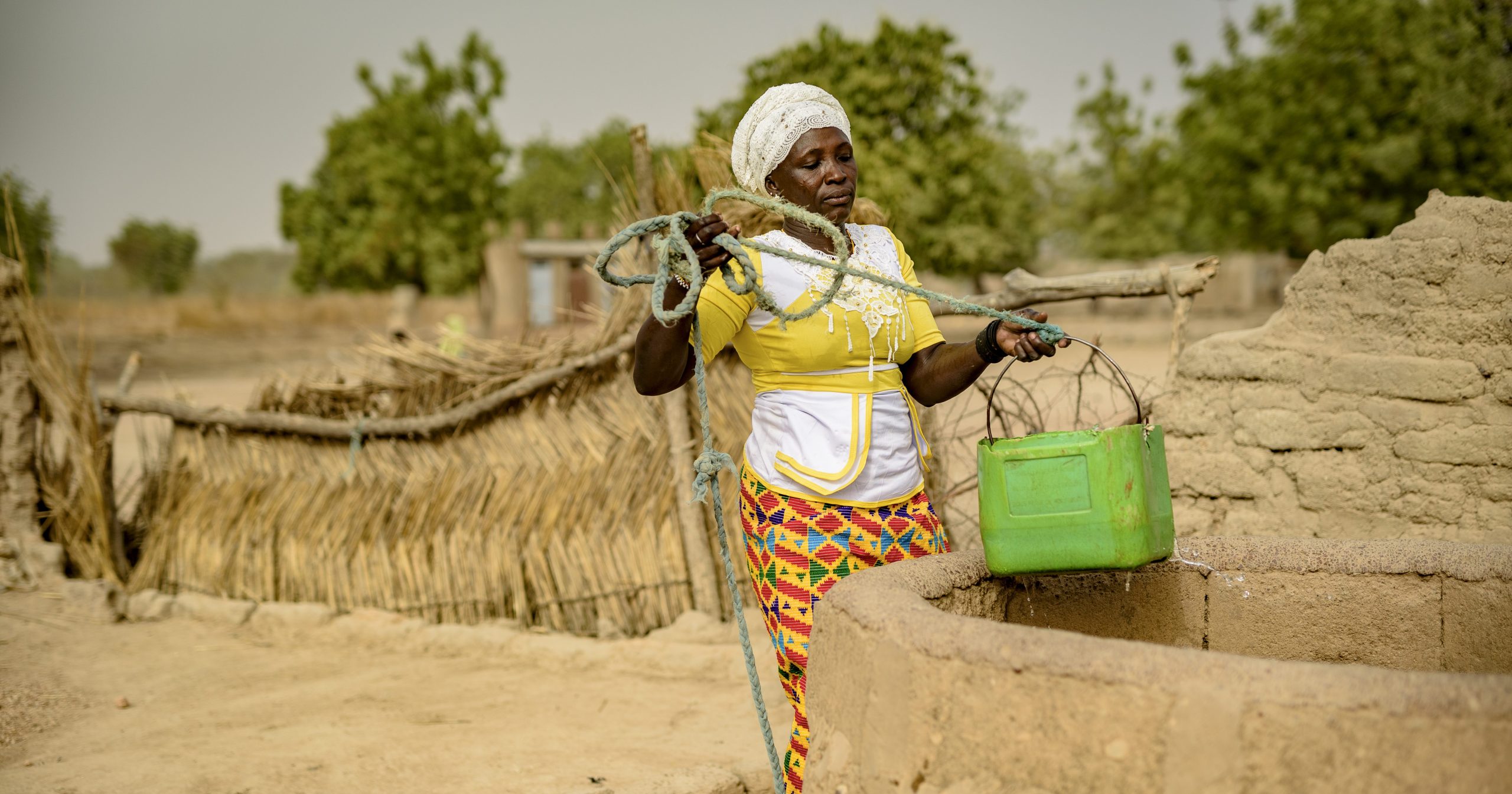
The Sahel is the area of the planet where it is perhaps more important to have access to water and sanitation, vital goals to make the necessary progress. © Carlos Garriga/ We Are Water Foundation
The same approach must be followed by governance in the Sahel: community participation and the creation of a science-based environmental culture is the key to tackling the complexities of managing access to water, agricultural and livestock balance, and drought prevention. International aid must come with this in mind; and it must do so urgently, over and above military pacification efforts. Nowhere is it more evident that without the achievement of SDG 6, the rest of the SDGs will not be possible. If the Sahel succeeds, the planet will envision a much brighter future.


